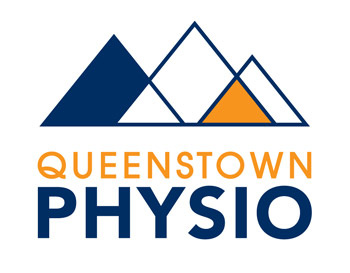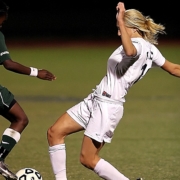New Study Into How Kiwi Women are Recovering from Knee Surgery
Published on www.stuff.co.nz on 6th of April 2022.
A new study into how Kiwi women are recovering from knee surgery involves a groundbreaking rehab programme especially tailored to sync with a woman’s menstrual cycle.
Knees are the bane of a sportswoman’s career. Just ask netballers like Monica Falkner, Georgia Heffernan and Bailey Mes, Black Stick Kelsey Smith or Football Fern Hannah Wilkinson. And Black Ferns Ruahei Demant and Ariana Bayler, who’ve both had their knees rebuilt three times. Each year, around 3000 New Zealanders undergo surgery on their anterior cruciate ligament, better known as ACL. Almost half of those knee reconstructions are on women. But the most worrying statistic is that it’s happening more to teenage girls than any other age group. Research in 2019 showed over the past decade, there’s been a 120 percent increase in the number of 15 to 19-year-old girls undergoing ACL surgery.
There’s also growing concern that females aren’t recovering from their surgeries as well as males are. And a big part of that problem is, as most sport science has been dominated by male-based research, most rehabilitation programmes for ACL injuries are tailored for men. What hasn’t been studied well is the role a woman’s menstrual cycle can play in her recovery. So physiotherapist Emma O’Loughlin has created a study as part of her PhD thesis at the Auckland University of Technology to better understand how the menstrual cycle affects rehabilitation after ACL surgery. With the help of physiotherapy professor Duncan Reid and renowned female athlete physiologist Dr Stacy Sims, she’s designed a rehab programme specifically for women, now being trialled around New Zealand.
“Women are more likely to not be doing as much activity after their surgery as men do, and are not as likely to return to sport afterwards,” says O’Loughlin, who’s also an ultra runner. “And on a more simple level, they aren’t as strong, so they don’t have as much recovery of their muscle strength after surgery. “So that’s what we’re looking at. We’re gathering women from all around the country, then working with surgeons and physios to give them a female-specific rehab programme. “Every woman who does her ACL – whether they’re a sportswoman or a mum who’s hurt her knee bouncing on the trampoline with her kids – should be engaging in high quality rehab. And that’s what we’re providing.” It’s a strengthening programme, working in combination with phases of a women’s menstrual cycle.
O’Loughlin is still looking for women who are aged over 16 and have a regular menstrual cycle. Six weeks after their surgery, they engaged in the 12-week rehab programme through a physio. “We’re working with their physiology to get them do strengthening exercises, measuring before the trial and after, then comparing them with people who are engaging in normal physiotherapy,” she says. So far into the trial, the evidence points to women returning stronger having done their exercises timed with their menstrual cycle.
“From day 1 to 14 of your cycle, you’re building levels of oestrogen – which is like a female version of testosterone, an anabolic that helps to build muscle. Once you release the egg, for the second half of your cycle, you’re releasing progestin that opposes the oestrogen, and stops it working so well to build muscle,” O’Loughlin says. “What the evidence says so far is that, by and large, if you carry out a lot of your resistance training – your squats, leg presses, lunges, knee extensions, bicep curls – in the first half of your cycle before you release your egg, and you repeatedly do that for three to four months, at the end of the trials women have an increased strength through menstrual cycle-based rehab training.
“There are stages of our cycle where we feel better, or a bit grotty. It may be a good time based on how we’re feeling to carry out those high intensity sessions between the first day of your period and ovulation. “Alongside that, there’s some evidence that it might increase lean body mass – actual muscle bulk.” O’Loughlin is quick to point out that cycle-based rehab isn’t “the golden ticket” that patient wants – a quicker rehabilitation. Most athletes take between nine and 12 months to return to sport. “We look at whether the injured leg has the same strength as the other leg, or if there’s less than 10 percent difference around the six to nine-month mark. What we expect is women are better placed to pass the criteria tests at that time,” O’Loughlin says.
Duncan Reid says O’Loughlin’s study is critical for developing rehab programmes that work for women. “Women are not only behind the eight ball because they’re not as strong as men. The programmes developed for ACL rehab are all based on men, which is a problem,” Reid says. “And if you don’t get the strength back in your knee even though you’ve had it repaired, you’re predisposing yourself to quite significant osteoporosis further down the track. “Women are going to be more likely to have a knee replacement at a younger age. You’d expect women in their 70s, but I’m seeing women in their 50s because of injuries they sustained as young people.”
Some sports, like netball, have developed injury prevention plans in partnership with ACC. NetballSmart, for example, has reduced the incidence and severity of injuries by getting players to do a 15-20 minute dynamic warm-up. “Netball is really interesting because there’s a lot of really good work being done to reduce the number of injuries,” says Reid. “But netball is also the perfect storm for rupturing your ACL because you only take two steps and you twist and turn. Even with the best intentions, as you see at our elite levels, people will still rupture their cruciate. “The other part of this puzzle is the second rupture. If you’ve done it once you’re predisposed to the second one. But we’re hoping across the world better designed rehab programmes will reduce the chance of having a second or third event.
“Because they cost hugely – both financially and the personal cost. After nine to 12 months rehabbing with the first one, the thought of going through that for a second time is just depressing.” In the study to help women return from knee surgery stronger, there’s another hurdle facing both patients and physios – talking about periods. “When we designed the trial, we learned physios see the menstrual cycle as something they don’t know a lot about, but it’s something they’re super interested in learning about,” O’Loughlin says. Some cultures still consider it taboo to talk about menstruation, but technology is helping.
“A lot of the female athletes are now tracking their cycles through apps on their phone, like FITR Woman, Flo and Clue. A lot of the female physios are too,” O’Loughlin says. “It’s become more normalised to talk about it in the last few years.” There are now more than a dozen women involved in the trial, with numbers increasing in Auckland since sport and elective surgeries have returned, after been cut during the Covid lockdowns. O’Loughlin hopes to have around 50 women rehabbing to their menstrual cycles by the end of the year.






